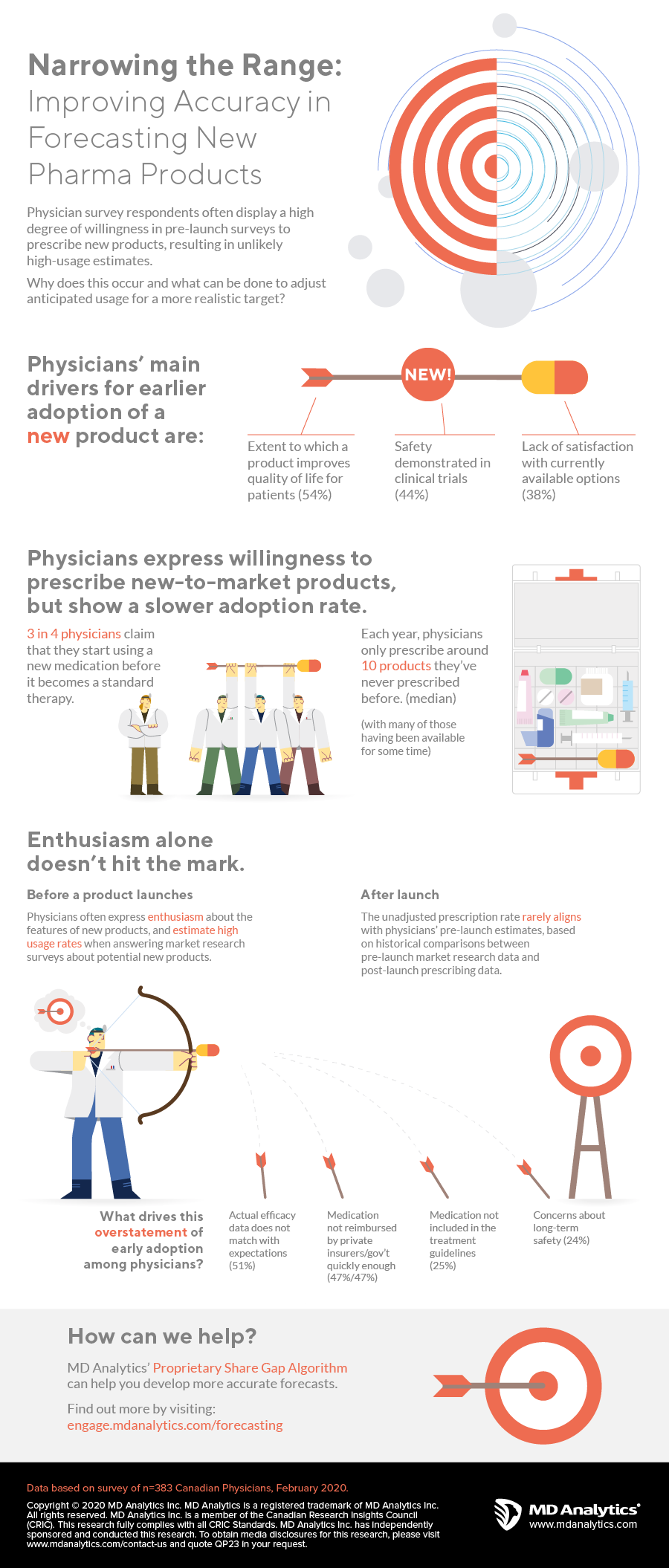Physicians recognize that new medications often can be quite valuable for their patients and are eager to add them to their armamentarium. However, they do not always end up prescribing these new medications as much as they initially plan or as early as they would like. There are many reasons that can explain this discrepancy – with the most common ones pertaining to coverage/reimbursement issues or the drug efficacy and safety features not exactly aligning with physicians’ initial expectations or the amount of time that elapses between a new product launch and the time physicians become fully familiar with it. This can often make forecasting physicians’ likelihood of prescribing new medications challenging for pharmaceutical manufacturers. See our latest infographic to learn more about the factors impacting early adoption rates.
Read More
Over the years, MD Analytics has supported the launch of a large number of new products for its healthcare and pharmaceutical clients, across a broad spectrum of indications ranging from lifestyle drugs to oncology treatments. We have regularly observed physicians’ significant enthusiasm for new products based on unbranded descriptions, as well as the large anticipated shares of prescriptions they provide for them.
While it has been difficult for our clients to gauge the extent to which physicians overstate their likely prescribing of a new product, we have been able to leverage our large database of such products to more accurately assess the extent of this overstatement and improve the accuracy in forecasting for new pharma products. This additional level of precision can make the difference when gauging the resources needed to put behind a new product launch and to more precisely plan the levels of production required for the new treatment.
If you are curious to see if our Share Gap Algorithm would be a good fit for the launch of your new product, learn more here.

